The Straight Shot: Federal vaccine updates - Jun 27, 2025

weyo - stock.adobe.com.
The first half of 2025 has seen many changes in federal vaccine policy and programs. This list—published June 27, 2025, and drawn from news reports and other information—ranks the most significant changes to vaccination policy, with brief commentary from the editors.
Editors’ note: This week's consequential meeting of the Advisory Committee on Immunization Practices capped an intense week of new developments in federal vaccine policy. The pace of change is accelerating, with the potential for major changes to vaccine recommendations and access in the coming weeks.
The Straight Shot in your inbox
Stay up-to-date on threats to vaccine safety, changes in federal policy, and vaccine availability and accessibility with The Straight Shot. Click below to get these updates directly in your inbox.
Sign up for email updatesNew and updated
1. Introducing the Bizarro ACIP
The Bizarro world in DC Comics is inhabited by characters opposite their real-world personae; for example, Bizarro Superman is a supervillain, and Bizarro Jerry Seinfeld is kind and generous.
Here are some procedural differences between the old ACIP and Bizarro ACIP:
| ACIP | Bizarro ACIP |
Members have deep expertise in infectious disease, vaccination and implementation of immunization programs. | Multiple members lack expertise in these areas. Others have engaged with vaccine policy at the fringes of vaccine skepticism. "It's striking how little the voting members seem to know about the diseases and vaccines that they are discussing," said one vaccine expert to The New York Times. |
| Meetings begin with disclosure of each member's conflicts of interest. | At the first meeting, neither Dr. Kuldorff nor Dr. Malone mentioned the work they had done as expert witnesses in lawsuits against vaccine manufacturers, despite the previous members’ alleged conflicts of interest being part of the reason they were cut. A third member dropped out the night before the meeting “during the financial holdings review.” |
| Discussions include any ongoing vaccine-preventable outbreaks. | No discussion of the ongoing measles outbreak in the United States. |
Members are chosen after a public call for nominations. | Sec. Kennedy hand-picked the members and has said that a new spot will be chosen by Sen. Bill Cassidy. Sen. Cassidy had previously called for the meeting to be postponed due to its inexperience and lack of ideological diversity. |
| The American Academy of Pediatrics participates in the meeting. | The American Academy of Pediatrics (AAP) declined to participate in the meeting out of concerns that the process has become politicized. |
Until ACIP follows regular procedures and supports reasonable scientific dialogue about vaccines, the Straight Shot will refer to the committee as Bizarro ACIP in this week's issue. – JR
The ACIP as we knew it–a serious panel of experts who make science-based recommendations that are key for keeping Americans healthy–no longer exists. The AAP made the right decision not to participate. – SD
2. Bizarro ACIP removes recommendation for certain influenza vaccines
Typically, the ACIP considers evidence and analysis from CDC staff before making vaccine recommendations. In its first major action, Bizarro ACIP did the opposite – ignoring the evidence and analysis brought forward by the CDC staff.
The topic: Influenza vaccines that contain the preservative thimerosal. Before the ACIP meeting, CDC posted an expert analysis of the evidence around thimerosal on the ACIP website. This analysis summarized multiple studies and reviews and concluded, “Considering the breadth of evidence and consistency in results from multiple population-based studies conducted in several countries with various study designs, the evidence does not support an association between thimerosal-containing vaccines and autism spectrum disorder or other neurodevelopmental disorders.”
Yet prior to the meeting, the CDC's analysis was taken down from the official ACIP website. It was not presented or discussed. When asked why, Bizarro ACIP member Dr. Malone said that the Office of the Secretary of HHS did not authorize the document. (Previously, ACIP materials were not authorized by the political staff in the Office of the Secretary.)
In place of presentations by or discussions with CDC staff on this topic, the Bizarro ACIP heard from Lyn Redwood. Redwood is the President Emerita of Children’s Health Defense, the anti-vaccine organization founded by Sec. Kennedy; she presented in what she said was her private capacity, even though it was also reported this week that Redwood has been hired to work at HHS (see item 8 below). Her original presentation posted on the ACIP website contained several errors, including at least one citation to a study that doesn’t exist.
After Redwood's presentation, Bizarro ACIP voted 5-1 with one abstention to recommend against the use of thimerosal-containing flu vaccines.
ACIP voted to recommend against thimerosal-containing flu vaccines on the basis of a single external presentation without any discussion with expert CDC staff. There will be sufficient thimerosal-free flu vaccine in the upcoming season so this decision should not affect supply. However, it is extremely concerning that ACIP took this action without a complete and transparent discussion of all of the available evidence, which demonstrates that thimerosal-containing vaccines are safe and effective. – SD
3. Bizarro ACIP launches new investigations on vaccine safety
At the beginning of the meeting, the Bizarro ACIP chair announced two new workgroups. The first aims to review the cumulative effects of the childhood and adolescent vaccination schedules. The second intends to examine vaccination recommendations that have not been reviewed in the past seven years, including the birth dose of hepatitis B vaccine–long a target of anti-vaccine organizations.
Bizarro ACIP also spent time discussing the low but increased risk of febrile seizures associated with the measles/mumps/rubella/varicella (MMRV) vaccine. ACIP has previously considered this issue, and already recommends that children, when they receive the first dose, receive MMR and varicella separately in order to reduce this risk. Bizarro ACIP agreed to spend additional time on this topic at the next meeting.
Major medical organizations–including AAP, the American College of Obstetricians and Gynecologists (ACOG), the American College of Physicians (ACP), the American Academy of Family Physicians (AAFP), and the Infectious Diseases Society of American (IDSA)–have issued a strong joint statement committing to combat vaccine misinformation. – JR
CDC staff continue to demonstrate both professionalism and a commitment to public health, by giving evidence-based presentations on a number of topics, including Covid vaccine safety, RSV, and influenza, and by speaking out after leaving the agency. The panel next meets in September or October. – PL
4. Kennedy announces defunding of GAVI, the Vaccine Alliance
On June 25, Sec. Kennedy announced that the U.S. would no longer fund Gavi, the international agency that makes vaccines available to millions across the globe. As part of his rationale for his decision, Sec. Kennedy referenced a single discredited study of diphtheria/tetanus/pertussis (DTP) vaccination that showed an increase in all-cause mortality, while at the same time, ignoring all of the other evidence that WHO and Gavi rely on to support the safety and effectiveness of the DTP vaccines Gavi supplies.
A US official with years of experience in global health and immunization raised the concerns that this decision will lead to reductions in access to safe and effective vaccines, fuel vaccine hesitancy, and increase outbreaks of vaccine-preventable diseases.
Although he calls for the use of “gold standard science” in decision-making, Secretary Kennedy routinely cherry-picks the studies he cites. And although he has pushed for shared decision-making around vaccines, he ignores the preferences of low-income countries in determining which vaccines best meet their needs. Given that Gavi is estimated to have saved 17 million lives over the past 20 years, this decision may be one of the most impactful yet made by Secretary Kennedy. – JR
5. The nominee for the Director of CDC testifies on Capitol Hill
Last week, the Senate Health, Education, Labor and Pensions Committee held a nomination hearing for Dr. Susan Monarez, who has been nominated to lead the CDC. She did not name any points of disagreement between herself and Secretary Kennedy. She did, however, emphasize the value of vaccines and stated no evidence supports a causal link between vaccines and autism.
A defining quality for a CDC director in the current era will be backbone, or lack thereof. The CDC should be led by someone who can and will tell Secretary Kennedy to stop interfering with critical scientific processes that support American health. A formal vote on her nomination is pending. – JR
6. Sec. Kennedy repeats falsehoods about Covid vaccination in pregnancy
At a hearing on his proposed budget on June 24, Sec. Kennedy falsely claimed that there was no science to support the recommendation that pregnant women receive Covid vaccinations. Currently, the CDC’s website says that pregnant women are at increased risk of adverse outcomes from Covid infections and that studies that involve hundreds of thousands of people have shown that these vaccines are safe and effective before and during pregnancy and are beneficial to both the woman and her baby.
HHS previously shared an FAQ document with Congressional offices that attempted to justify removing the recommendation that healthy pregnant women and children receive the Covid vaccine. This document is riddled with inaccuracies; it cites unpublished and disputed studies, and mischaracterizes and omits studies whose findings do not support the change in recommendations. Meanwhile, based on the available data, ACOG strongly recommends Covid vaccination during pregnancy.
Despite all the rhetoric about radical transparency and gold-standard science, HHS has still not provided a persuasive rationale for changing the Covid recommendations over the objections of medical professional organizations. This is not the path to improve public confidence in the health agencies. – JS
The Straight Shot in your inbox
Stay up-to-date on threats to vaccine safety, changes in federal policy, and vaccine availability and accessibility with The Straight Shot. Click below to get these updates directly in your inbox.
Sign up for email updatesOngoing
7. HHS mismanages the measles response in the Southwest
As of June 24, 2025, there have been 1,227 confirmed cases of the disease, including 148 hospitalizations and three deaths; this is the largest outbreak in the US in 25 years. California now has more cases in 2025 than in all of 2024. CDC added a checklist for summer camps to its measles toolkit.
One challenge in the response is Sec. Kennedy making misstatements about the safety of the measles vaccine, endorsing unproven treatments, and preventing experts from briefing the public. HHS also cut grant funds for the states' measles responses.
We know that measles tends to be seasonal, occurring most commonly in the Winter and Spring. Fortunately, cases appear to be waning, but we will continue to be watching to see if there are additional surges and how HHS responds. If cases persist through the summer and into the fall, the United States will likely lose measles-free status. – SD
8. HHS hires anti-vaccine activists to review vaccine safety data
HHS has hired David Geier, a leading source of misinformation about vaccines, to investigate questions related to vaccine safety. The Wall Street Journal has reported on Geier’s attempts to gain access to various databases within HHS, including one that he had twice been precluded from using as a result of violating ethical rules. “He has no record in the scientific community of doing valid work,” said Dr. Walter Orenstein, an epidemiologist and former director of the U.S. National Immunization Program at the CDC.
As noted in item 2 above, the recent hiring of Lyn Redwood at HHS poses similar reasons for concern.
This item, detailed in previous updates of The Straight Shot, stays on our list until the Geier report is released. – JS
9. FDA adds new restrictions and requirements on Covid vaccines
FDA has yet to release documents about the implementation of the agency's new approach to Covid vaccine approval, which was announced in an article in the New England Journal of Medicine. As a result, many questions remain.
Editor’s note: This item, described in more detail in previous updates of The Straight Shot, will stay on our list until FDA puts forward a clearer explanation, such as a guidance document. – JS
10. HHS moves $500 million to study older vaccine technology favored by two appointees
HHS abruptly pulled $500 million from contracts for next-generation vaccines and is using the funds to study a type of “whole-virus" vaccine technology championed by two political appointees. “Whole-virus” vaccines are 70 years old and thought by many scientists to be less effective and cause more adverse effects than newer technologies.
This item, described in more detail in previous updates of the Straight Shot, will stay on our list until we learn more about this enormous investment of federal resources. – JS
11. Confusion over leadership at the CDC
There remains confusion about leadership at the CDC; with a nominee still pending confirmation (see item 5, above), the HHS Secretary seems to be making key decisions for the agency. As a CDC employee told Axios, “CDC folks are really well equipped for dealing with uncertainty because we work on emergency responses,” but ”it's hard when the internal is chaotic.”
The CDC Director is responsible for overseeing the agency's work on vaccines, including updating the immunization schedule. We're going to keep this on the list until a CDC Director is confirmed by the U.S. Senate. – JR
12. HHS Secretary delays action on ACIP recommendations
At the April 16 meeting of the ACIP, the committee made recommendations for the use of a new chikungunya vaccine, RSV vaccines for older adults, and a new pentavalent meningococcal vaccine. Secretary Kennedy, acting in the absence of a CDC director, has adopted the ACIP recommendation for a new chikungunya vaccine, but he has not yet acted on the two other ACIP recommendations.
This item will stay on the list until Secretary Kennedy acts on the outstanding recommendations. – SD
13. HHS cuts funds for vaccination in states and for its own vaccine staff
A federal judge has ruled that the Administration cannot proceed–in certain states that sued–with billions in cuts to state public health funds. In the other states that did lose funding, some funds were used to support vaccination clinics; other funds were used for outbreak monitoring and response. Personnel cuts to CDC vaccine activities have remained in place.
This item, detailed in previous updates of The Straight Shot, stays on our list until the litigation is resolved. – JR
14. White House issues an initial MAHA report
On May 22, the White House issued the Make Our Children Healthy Again Assessment. One section of the report was dedicated to concerns regarding vaccines, questioning the expansion of the childhood immunization schedule, the adequacy of clinical trials, the effectiveness of safety monitoring, the integrity of the Vaccine Injury Compensation program, and the role of vaccine mandates. The report has come under fire for the inaccuracy of data as well as errors in citations as a result of the use of generative AI. (No change from the previous update.)
We will keep this issue on the list until the MAHA Commission’s final report is issued. – SD
15. HHS and autism
On April 10, Sec. Kennedy announced in a cabinet meeting that HHS has launched an effort to understand the causes of autism, with results expected in September. He has since amended that timeline, saying that there will be some information in September and “more definitive” information coming six months after that. On May 7, CMS and NIH announced that they will be sharing data in order to investigate the causes of autism. We're watching whether this effort will proceed in a scientifically rigorous manner, including whether it will attempt to point to vaccines as the cause of autism. On May 27, the NIH issued the funding opportunities for its Autism Science Data Initiative. (No change from the previous update.)
16. HHS examines vaccine injury compensation program
We noted last week that HHS awarded $150,000 to a law firm with a history of litigating claims alleging injuries from vaccines. There is limited publicly available information about this award to the firm Brueckner, Spitler, Shelts for “National Vaccine Injury Compensation Program (VICP) expertise.” One of the lawyers at the firm, Andrew Dowing, has brought cases in the VICP seeking compensation for patients allegedly damaged by vaccines and he is also involved in the lawsuit against Merck, alleging the company underplayed risks associated with its HPV vaccine.
This week, Dr. Robert Malone, a member of the Bizarro ACIP, posted an attack on the entire injury compensation program on X.
The Vaccine Injury Compensation Program is a critical component of the vaccination infrastructure, providing limited liability for vaccine manufacturers and administrators, and compensation for people who have been injured by vaccines. Any process to change the program should be transparent, open to public input, and not dominated by people or law firms with conflicts of interest. And it should not be happening behind closed doors. – SD
Archived this week
1. HHS drops recommendations for Covid vaccines for healthy children and pregnant women from its immunization schedule.
These new recommendations have already affected the availability of Covid vaccines. A pregnant woman in Seattle, WA told CNN she has been turned away from getting a Covid vaccine twice over the last weekend. Over 30 groups, including provider groups, issued an open letter calling on payors and insurers to continue to cover Covid vaccines.
The changes to the Covid recommendations were not based in carefully considered science. But the practical implications of these changing recommendations are real, and they are going to cause actual harm to pregnant women and their children. – PL
Tags
Topics
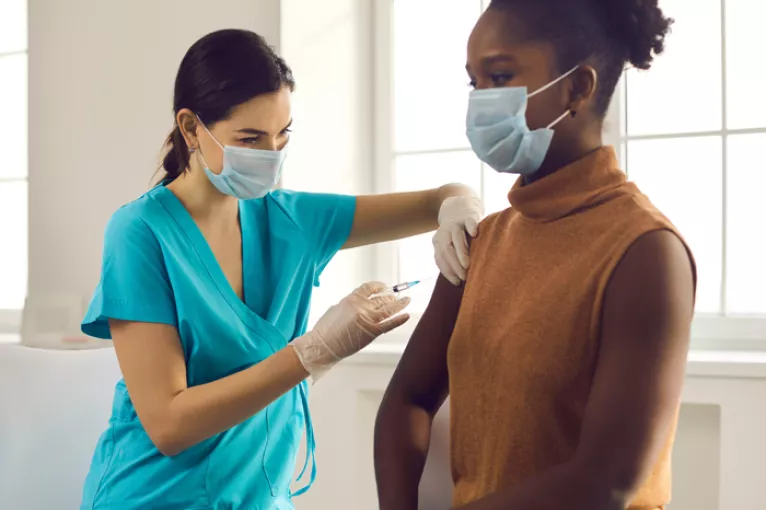
All Straight Shot updates
2025 has seen many changes in federal vaccine policy and programs, some of which threaten to harm the health and safety of millions of Americans. The Straight Shot—drawn from news reports and other information—ranks the most significant changes to vaccination policy, with brief commentary from the editors.
The authors
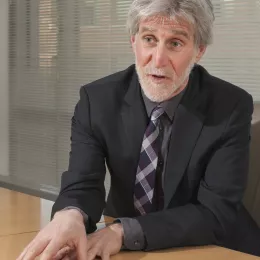
Peter Lurie, MD, MPH
President and Executive Director

Sarah Despres

Josh Rising, MD, MPH

Joshua M. Sharfstein, MD
The latest threats to vaccines
Off-label use of COVID-19 vaccines was once discouraged but has become common amid new guidelines
Vaccines
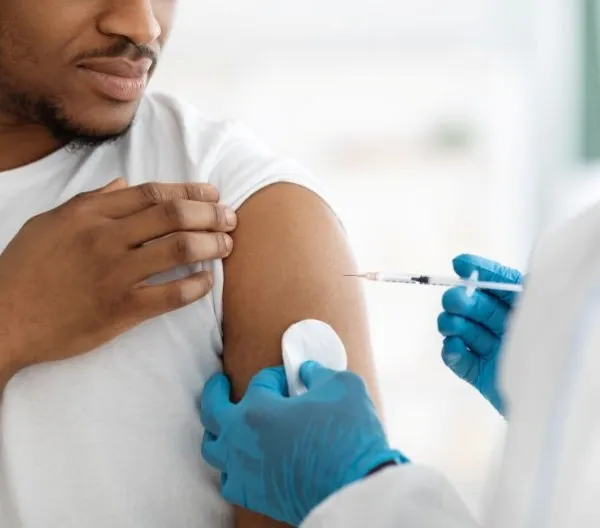
Inside the high-stakes battle over vaccine injury compensation, autism, and public trust
Vaccines

Do pediatricians recommend vaccines to make a profit? There’s not much money in it
Vaccines

CDC purge and Covid vaccine restrictions threaten public health
Government Accountability
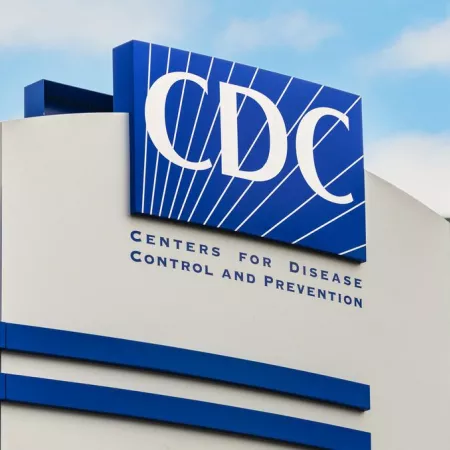
Pediatricians’ association recommends COVID-19 vaccines for toddlers and some older children, breaking with CDC guidance
Vaccines
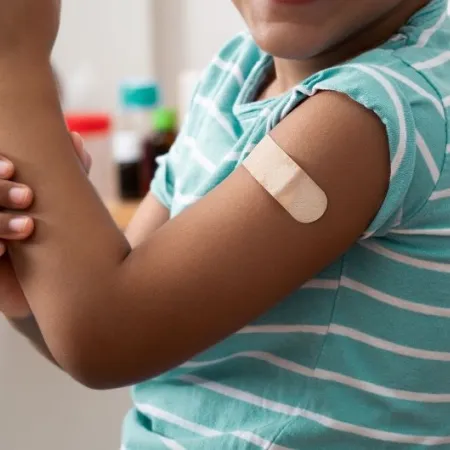
CSPI is your food & health watchdog
We envision thriving communities supported by equitable, sustainable, and science-based solutions advancing nutrition, food safety, and health.
As a nonprofit organization that takes no donations from industry or government, CSPI relies on the support of donors to continue our work in securing a safe, nutritious, and transparent food system. Every donation—no matter how small—helps CSPI continue improving food access, removing harmful additives, strengthening food safety, conducting and reviewing research, and reforming food labeling.
Please support CSPI today, and consider contributing monthly. Thank you.
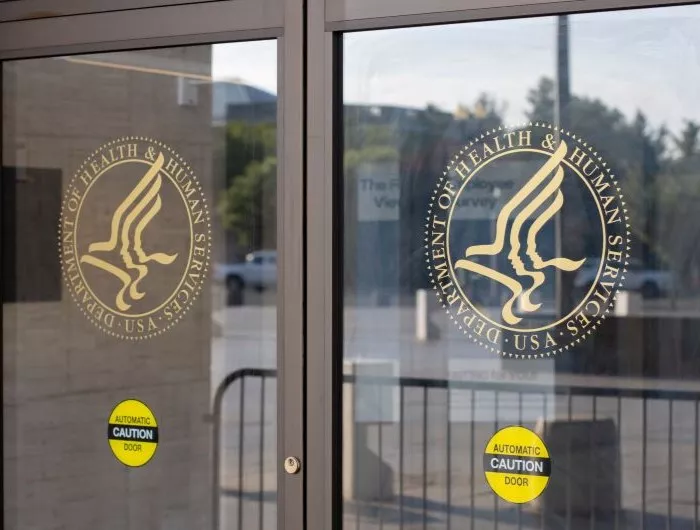
How CSPI is fighting threats to public health
Safe, nutritious food. Effective medicine. Empowered consumer choice. Honest and democratic government. These key building blocks of an American way of life can only be fully realized in a system that respects evidence, transparency, and accountability—a system where leaders believe in science and work for the public interest.

